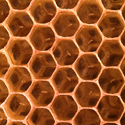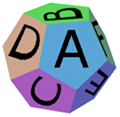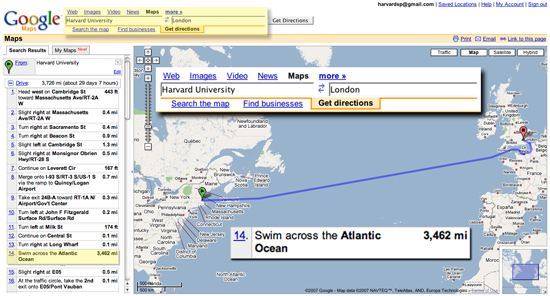| ||||||||||||||||||||||||||||
| SCIENCE AND TECHNOLOGY | RELATED ARTICLES | |||||||||||||||||||||||||||
|
Nature, Science Introduce Each Other As Sub-Journals
Steele, who was previously responsible for launching such sub-journals as Nature Neuroscience, Nature Physics, and Nature Nurture, stressed that his latest brainchild is a world apart from these lesser imitations. Taking a brief sip from a glass of all-natural fruit juice, he continued, "With Nature Science, we plan to do something truly extraordinary," he said. "Imagine something almost as prestigious as Nature, yet substantially better than Science. That is what Nature Science is going to be." Within minutes of Steele's announcement, the American Association for the Advancement of Science (AAAS), held a press conference in Washington, DC, to discuss its heretofore unannounced sub-journal, Science Nature. "It will no longer be necessary to reluctantly toss the world's second-best scientific work into the Nature waste bin. Now it too can be published in Science, with our newest sub-journal, Science Nature," announced AAAS chairman Cynthia Childs, surrounded by reporters. Stunned members of the news media were barely able to ask their first questions before a representative from Nature Publishing Group, evidently planted in the crowd, stood up to make a surprise announcement. "Ladies and Gentleman," began Nature representative Julius Clyburn, smiling widely behind his Nature Publishing Group-emblazoned megaphone. "It is with great pleasure that Nature Publishing Group introduces its latest sub-journal, Nature Science Nature." With a triumphant hand gesture, he added, "If you're not publishing in Nature Science Nature, then you're not publishing in Nature Science. But that's not all. You no longer have to publish in Nature Science at all — because now, you have an even better option — Nature Nature!" Visibly shaken, AAAS representative Childs regained control of the press conference, calling security to escort the Nature representatives from the premises. After snapping her cell phone shut, she then proceeded to announce a litany of new Science sub-journals, including Science Nature Science Nature, and Science Science Science Science, among others. She continued, "We welcome submissions to these new journals, but must warn you that the competition is going to be very stiff indeed, especially for those with the fewest repetitions of the word 'Science' in the title." Within hours of these announcements, the Library of Congress set forth a new system of nomenclature for Science-Nature journals based on exponents. Representative Phillip Anderson explained, "Let's say you want to use the new short-hand for Science Science Nature Science Science Science Science. All you really need to write is [Science]2[Nature][Science]4. It's a completely natural notation, and makes it easy to keep track of which journal you're talking about." Added Anderson, "But honestly, I wonder whether you could just write [Nature][Science]6. Isn't the order commutative anyway?" This last comment drew fire from representatives of both publications, which vehemently denied the two journal names were comparable, as the latter clearly ignores the priority of the first journal listed. Meanwhile, the Cell Press filed lawsuits against both Nature Publishing Group and AAAS in federal court today, alleging unfair business practices. "Pretty soon, if your journal has neither the word 'Science' nor 'Nature' in the title, no one is going to want to publish there," read a statement from the company. The statement continued, "We at the Cell Press have both professional and scientific concerns that the business practices of Nature Publishing Group and AAAS are threatening publishing group diversity." Minutes later, Cell Press announced the journals Cell Nature Science, Cell Science Nature, Nature Cell Science, Nature Science Cell, Science Nature Cell, and Science Cell Nature, amid much fanfare. Responses from academia have been mixed. "On the one hand," said Harvard Medical School Systems Biology professor Vladamir Samsonova, "it is always wonderful to know that you have one more way to publish in Nature or Science or Cell. But on the other hand, with so many ways to publish, how are universities going to make tenure decisions? How are academics going to decide how much they value a colleague's work? Are they actually going to have to read it? This is a headache that we really don't need." Meanwhile, Notre Dame physicist Albert-Lazlo Barabasi has predicted that the prestige of the newly-formed journals will scale as a power-law, once their readership has reached steady-state. The article appears in this week's edition of the journal Nature Nature Science Nature Science Science Nature. HSP
|
SPONSORED LINKS
SPONSORED LINKS
SPONSORED LINKS | |||||||||||||||||||||||||||
| ||||||||||||||||||||||||||||
| The Harvard Satyrical Press is not intended for readers under 18 years of age (Disclaimer) | (c) Copyright 2026, The Harvard Satyrical Press, Some Rights Reserved | |||||||||||||||||||||||||||


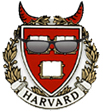
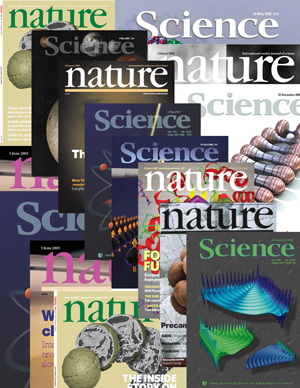
 FACEBOOK
FACEBOOK REDDIT
REDDIT STUMBLEUPON
STUMBLEUPON DEL.ICIO.US
DEL.ICIO.US
